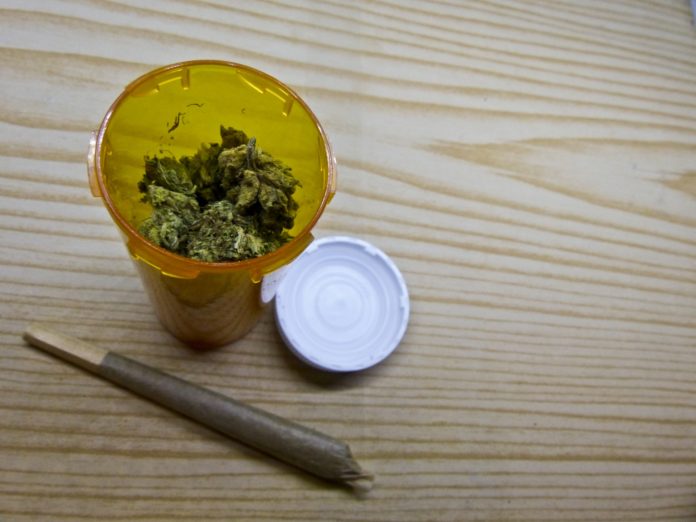The term “medical marijuana” refers to Cannabis sativa plant products that have been utilised to treat symptoms brought on by particular illnesses. Cannabis is another name for marijuana.
Even though there is a ton of science involved in understanding the concept of cannabis, we’ll try to make it as simple as possible: There are more than 120 cannabinoid components of cannabis in all. Tetrahydrocannabinol (THC) and cannabidiol (CBD) are the two most well-known and in-depth cannabinoids. THC is the compound that gives cannabis the “high” that many people associate with it, but CBD, which you may have seen in oils, candies, beverages, and other items for medical use, is a nearly intoxicating but non-euphoric substance.
If you live in New York and are suffering from any of the health conditions discussed below, you can apply for NY Medical Marijuana Card and begin your healing journey.
THC, which has analgesic properties, and CBD, a chemical that affects the brain and enhances its function without making one feel high, are both present in marijuana. Both substances can be extracted and refined for use using short-path distillation. marijuana users can benefit from the following health benefits
Health Benefits of Medical Marijuana
Brings BP Down
Participants’ blood pressure was observed to be lowered by CBD in a 2017 JCI Insight study. Both before and after demanding workouts like mental arithmetic, isometric training, and the cold pressor test, lowered their blood pressure.
Enhances Lung Capacity
When you smoke cannabis, your lungs are not affected like it does when you smoke cigarettes. On the contrary one study even indicated that cannabis can be beneficial in expanding your lung capacity
Helps to Treat Symptoms of Depression
Despite being very common, a great deal of people aren’t even aware they have depression. Endocannabinoids, which are found in cannabis, have been shown to help regulate mood and decrease depression.
Controls Seizures
According to research, CBD can help with seizure control. Investigations exploring how cannabis affects patients with epilepsy are ongoing.
Helping With Cancer Induced Symptoms
According to recent studies, CBD has several anti-cancer properties that can be used to lessen the side effects of chemotherapy as well as prevent a variety of cancers, treat tumours, and enhance the immune system. It has also been shown to inhibit cell growth and cause cell death in cervical cancer cell lines.
Beyond this, there are probably a great deal more advantages that are currently being investigated and evaluated. Participants in our recently launched Cannabis Entrepreneurship programme will probably have a significant impact on how this market evolves.
Anxiety Disorders Treatment
Anxiety disorders including generalised anxiety disorder, obsessive-compulsive disorder, social anxiety disorder, and panic disorder may all be helped by CBD, according to a preclinical study. The most prevalent ailment for which people use CBD is anxiety.
GI (gastrointestinal) problem treatment
Recent research suggests that GI illnesses such as IBS, IBD, Crohn’s disease, ulcerative colitis, and others can be effectively prevented and treated with CBD and other non-psychoactive cannabinoids. The ability of CBD to reduce inflammation is essential for both treating and preventing discomfort.
Aids in ADHD/ADD
Those with ADHD and ADD have trouble focusing on the task at hand. They typically have trouble focusing and thinking clearly. Cannabis has shown promise for enhancing focus and helping people with ADHD/ADD. Additionally, it is regarded as a safer alternative to Ritalin and Adderall.
Helps With Chronic Pain
There is evidence to suggest that drugs that contain both THC and CBD may be effective treatments for chronic pain, particularly neuropathic pain (pain caused by damage to the nerves), nociceptive pain (pain caused by ongoing inflammation and related damage), and neoplastic pain, according to a 22-study assessment of clinical studies published in Inflammopharmacology.
Helps With Symptoms of PTSD
PTSD can affect anyone who has been through stress, not just military personnel. Cannabis use is on the rise, and scientists are looking into whether it can help those with PTSD. Cannabis helps to keep the fight or flight response in check and prevents it from going into overdrive.
Slow Alzheimer’s Disease progression
Alzheimer’s disease is one of many conditions brought on by cognitive deterioration. As we age, cognitive decline is almost a given. Endocannabinoids from cannabis contain anti-inflammatories that work to reduce the brain inflammation associated with Alzheimer’s disease.
The Bottom Line
As a growing number of states permit the use of cannabis as a substance for either medicinal or recreational use, its popularity is continuing to climb. The U.S. Drug Enforcement Administration (DEA) has maintained its statement, making cannabis still illegal at the federal level, even though several medical professionals and researchers appear to disagree with this stance.
Numerous studies demonstrate that, if utilised safely and under professional supervision, cannabis is a legal and safe therapeutic substance, even though more peer-reviewed clinical research is still required.

















